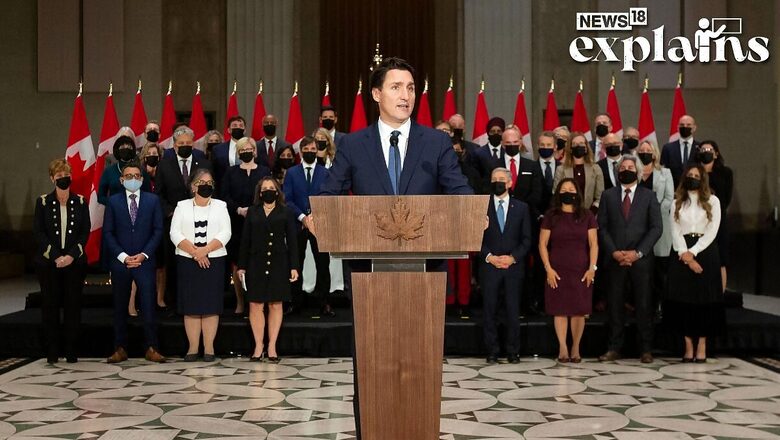
views
India-Canada relations hit a new low this week after the recent allegations by Canadian Prime Minister Justin Trudeau, who alleged Indian involvement in the killing of a Khalistani separatist leader in the country.
The two countries have expelled senior diplomats from their respective nations and New Delhi imposed temporary visa restrictions on Canadian citizens. This rift comes after India expressed strong concerns over growing Khalistani activities on Canadian soil.
Canada, however, has repeatedly ignored India’s requests for the security of its missions and citizens in the country. It has failed to address the issues related to anti-India hate and attacks on temples and Indian missions and has not brought the perpetrators to justice.
The inaction of Canadian authorities against anti-India activities isn’t new. The Canadian government and its agencies have failed to act against the terror activities of the Khalistani groups in the past too. One such instance is the 1985 Kanishka bombings, which resulted due to the failure of the Canadian government and its spy agency.
All About Canadian Security Intelligence Service
Canadian Security Intelligence Service, the country’s spy agency, was created in 1984 after failures within Canada’s federal police agency. The agency is tasked with monitoring threats to Canada’s national security and operates inside the country and abroad.
However, it doesn’t operate in par with its peers in other western nations. It lacks the intrigue of Britain’s MI5 and the notoriety of America’s Central Intelligence Agency.
The spy agency, however is considered toothless, as it cannot detain or arrest people and its intelligence cannot be used in prosecutions. The agency has a muted role in political culture as it doesn’t typically influence Canada’s foreign or national security policies.
CSIS to Blame for Kanishka bombing
The history of Canadian security services is filled with unpleasant events, the biggest being the Kanishka bombings in 1985.
In 1985 Kanishka bombings, an Air India Flight 182 flying from Montreal to London with its final destination to Delhi exploded after Khalistani terrorists fitted it with a bomb. The wide-bodied jumbo jet, christened Emperor Kanishka, was fitted with a bomb inside a suitcase.
The bomb exploded in Irish airspace at an altitude of 31,000 feet, killing all 329 people on board most of whom were Indian-origin Canadians. There were no warning or emergency calls issued by the Air India Flight 182 as it exploded within 45 minutes of taking off from Canada’s Montreal.
A 2010 report blamed the Canadian government for its failure to prevent the tragedy and the dispute between the Royal Canadian Mounted Police (RCMP) and spy agency CSIS. The report said that national security was organised badly between the RCMP and CSIS.
Henry Jensen, former deputy commissioner of operations, Royal Canadian Mounted Police had told the inquiry panel that the bombing was the result of an intelligence failure of massive proportions.
“I’ve always carried the view that this is the biggest and most disastrous civil intelligence failure that Canada has faced,” Henry Jensen told the inquiry panel probing.
According to a report in The Washington Post, the CSIS had the information that could have prevented the Kanishka bombing. However, as per the court documents, the Canadian Security Intelligence Service pulled back an agent who had infiltrated the militant group days before the bombing.
CSIS Poor Track Record Against China
The Canadian spy agency was in news after leaked intelligence documents that suggest China has a sophisticated election interference network across Canada and interfered in the 2021 federal election.
The allegations included secret campaign donations and that Chinese operatives were working for Canadian candidates and lawmakers in an attempt to influence policy. This resulted in the relations between Ottawa and Beijing hit a new low this year amid accusations of Chinese meddling.
More recently, it emerged that Beijing sought to intimidate an opposition Canadian lawmaker and his relatives in Hong Kong over his criticisms of China. However, amid all the Chinese interference, the CSIS was nowhere to be found.




















Comments
0 comment